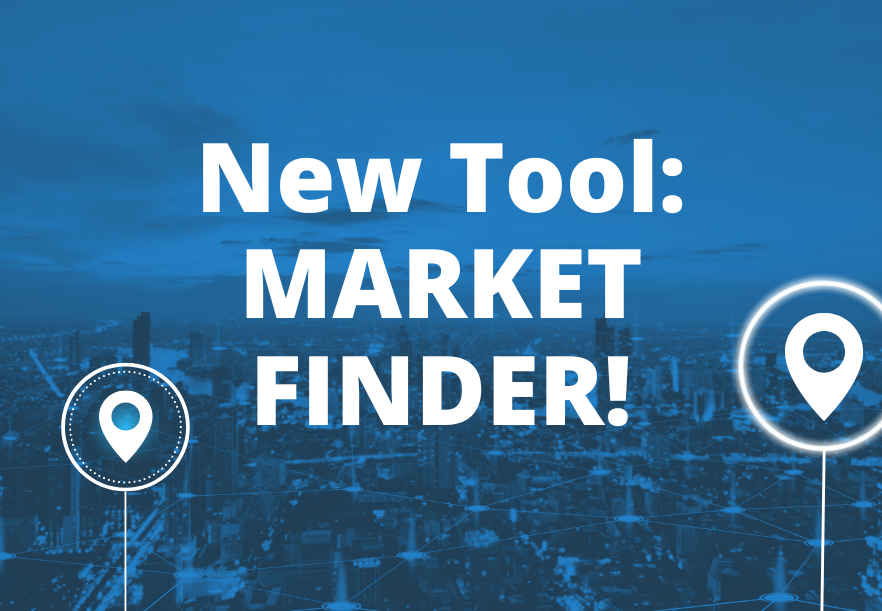[ad_1]
I’m from a city where you sweat just by stepping outside for a couple of seconds (Houston, Texas). The first time I ever traveled to New Hampshire was in September year ago, and it was the most amazing climate I had ever felt. I left and could not wait to return to enjoy getting out of the concrete sauna I lived in.
Fast-forward to December of the next year. I returned to New Hampshire with a few light jackets, not knowing I was walking into the North Pole when I stepped off the plane. I thought my phone was broken, reading -4°F at one point, and that no human could survive in this science experiment-like setting. The insides of my nose froze just walking outside, and I learned quickly that I was not built to live in the Northeast (sorry to any of my friends there).
I tell this story to show the extremes of several of the most enticing STR markets. Seasonal markets may be the answer for year-round activity without the extreme wardrobe changes needed.
What Is a Nonseasonal Market?
A nonseasonal market is one that rarely slows down. These tend to have slight weather variances (comparatively speaking to others) and enough events or occupancy to keep guests coming all year round.
But slow down before you think all markets with good weather are slam dunks. Some of the best markets in the country can produce enough income in just four to five months, which still makes the owners see a solid return with less work.
When diving into short-term rental markets, it’s fun to daydream about cozy cabins and beach bungalows, but you can’t ignore the numbers. It’s good we have AirDNA to nerd out over essential data points like seasonality, average daily rate (ADR), and occupancy.
Unless you buy in a vacation town-only market like Pigeon Forge, Tennessee, or Gulf Shores, Alabama, understanding all exit strategies is crucial to making a sound long-term investment. Using the BiggerPockets Market Finder, you can see exactly the type of data you need to compare markets.
Suppose you ever need to pivot away from STRs because of regulations or underperformance. In that case, these long-term metrics like the rent-to-price ratio (RTP), median home price, and affordability percentage will help you sleep at night, knowing you still have an investment with a high upside.
Understanding the Metrics
While both of these tools (AirDNA and Market Finder) are based on data averages here, nothing will ever compare to identifying a market and examining your competition in that market.
What are the comparables sold? What are the top-performing STR properties in the area? How can you beat them out with amenities? What is the typical long-term rent in the area? Ask any other question that will help give you the complete picture of a market.
Seasonality rate
You might think a high seasonality number is terrible, but here’s the twist—it’s not. A higher seasonality rate means demand stays more consistent throughout the year. If you’re looking at a market with a high rate, you’re less likely to sit around in the slow months staring at an empty calendar. The higher the number, the fewer slowdowns.
Average daily rate (ADR)
This is a fancy way of saying how much money you can make per night. A higher ADR means more cash per booking, which is a good thing.
Occupancy rate
This is how often people are staying in your place. Even if your ADR is through the roof, if no one’s booking your property, that money is just a dream.
Rent-to-price (RTP) ratio
The median house price is divided by the annual median rent. Think of this as your return on investment. The higher the RTP ratio, the better return you’re getting compared to what you spent on the property.
Affordability percentage
This one’s a little different. It tells you how much of the average household income is needed to afford the median home price in that market. If this number is low, homes will be more expensive than what people make. High number? Your dream home just got a little more accessible.
The Top 5
I want to mention Las Vegas as possibly the most nonseasonal market in the US, but with strict regulations, I can’t fully endorse it as a great market to invest in. There are 13,000 active listings, so people are obviously still operating, but I would be very nervous.
Let’s get into the top five!
5. Oklahoma City, Oklahoma
- Seasonality rate: 86 (Consistent, like a cowboy’s work ethic)
- Annual revenue: $23,400
- Average daily rate (ADR): $154.9
- Occupancy rate: 52%
- Median home price: $233,372
- Rent-to-price (RTP) ratio: 0.57%
- Affordability percentage: 29.13%
Oklahoma City keeps things simple and steady. With a seasonality rate of 86, this city doesn’t slow down much. The ADR isn’t sky high, but at $154.9, paired with a modest home price, you have a solid entry point for STRs. The occupancy rate of 52% means you won’t be waiting forever for bookings, and your wallet won’t cry when you buy that first property.
4. Tuscaloosa, Alabama
- Seasonality rate: 80
- Annual revenue: $44,100
- Average daily rate (ADR): $413
- Occupancy rate: 36%
- Median home price: $214,305
- Rent-to-price (RTP) ratio: 0.72%
- Affordability percentage: 27.13%
Tuscaloosa? Oh yeah, that $413 ADR is not a typo. Football season is pure gold here, but the occupancy rate at 36% tells you to buckle up for the off-season.
Alabama has been progressing in its travel trends, as it has seen record tourism dollars in the last five years. Still, with homes priced just over $200,000, you don’t need much to turn a profit, especially when demand peaks.
3. Columbia, South Carolina
- Seasonality rate: 72
- Annual revenue: $32,500
- Average daily rate (ADR): $208.1
- Occupancy rate: 53%
- Median home price: $246,082
- Rent-to-price (RTP) ratio: 0.61%
- Affordability percentage: 25.8%
Columbia is like that steady friend who’s always there when you need them. With a seasonality rate of 72, it’s moderately consistent, and the rent-to-price ratio is one of the best. Plus, the affordable median home price means you’re not breaking the bank. You’ll see decent year-round traffic—perfect if you’re just starting with STRs. Easy entry, solid returns.
2. Flagstaff, Arizona
- Seasonality rate: 89 (Winter? What winter?)
- Annual revenue: $50,200
- Average daily rate (ADR): $268.3
- Occupancy rate: 59%
- Median home price: $625,695
- Rent-to-price (RTP) ratio: 0.38%
- Affordability percentage: 10.75%
Flagstaff’s seasonality rate of 89 shows this place doesn’t know how to slow down, even in winter. In fact, things might even pick up, thanks to all those outdoor-loving folks hitting the ski slopes.
Sure, the median home price might make you wince a little, but with an ADR nearing $270 and solid occupancy, it’s not as scary as it looks. You just need to bring your A-game (and maybe your savings account).
1. Shenandoah Valley (Harrisonburg), Virginia
- Seasonality rate: 93
- Annual revenue: $40,400
- Average daily rate (ADR): $262.9
- Occupancy rate: 47%
- Median home price: $317,509
- Rent-to-price (RTP) ratio: 0.52%
- Affordability percentage: 21.05%
Shenandoah Valley (Harrisonburg), Virginia, boasts a seasonality rate of 93, meaning guests are showing up almost year-round—apparently, those mountain views never get old. With an ADR of $262.9, you’re charging premium prices for that fresh air, and why not? Plus, with a median home price of $317,509, the barrier to entry isn’t too steep, so you can get in without breaking the bank. It’s like the perfect balance of high rates, low home costs, and nature doing all the marketing for you.
Final Thoughts
Flagstaff should be at the top of your list if you’re after year-round action. In particular, this market can even see a boost during winter months, with ski fans flocking in. If budget-friendly markets are more your speed, Shenandoah Valley, Columbia, and Oklahoma City offer solid returns without breaking the bank. And then there’s Tuscaloosa, where high ADRs make up for low occupancy—just say “Roll Tide” when you get there, and you’ll be OK.
Find the Hottest Markets of 2024!
Effortlessly discover your next investment hotspot with the brand new BiggerPockets Market Finder, featuring detailed metrics and insights for all U.S. markets.

Note By BiggerPockets: These are opinions written by the author and do not necessarily represent the opinions of BiggerPockets.
[ad_2]
Source link






 Bitcoin
Bitcoin  Tether
Tether  XRP
XRP  USDC
USDC  Lido Staked Ether
Lido Staked Ether  Dogecoin
Dogecoin  LEO Token
LEO Token